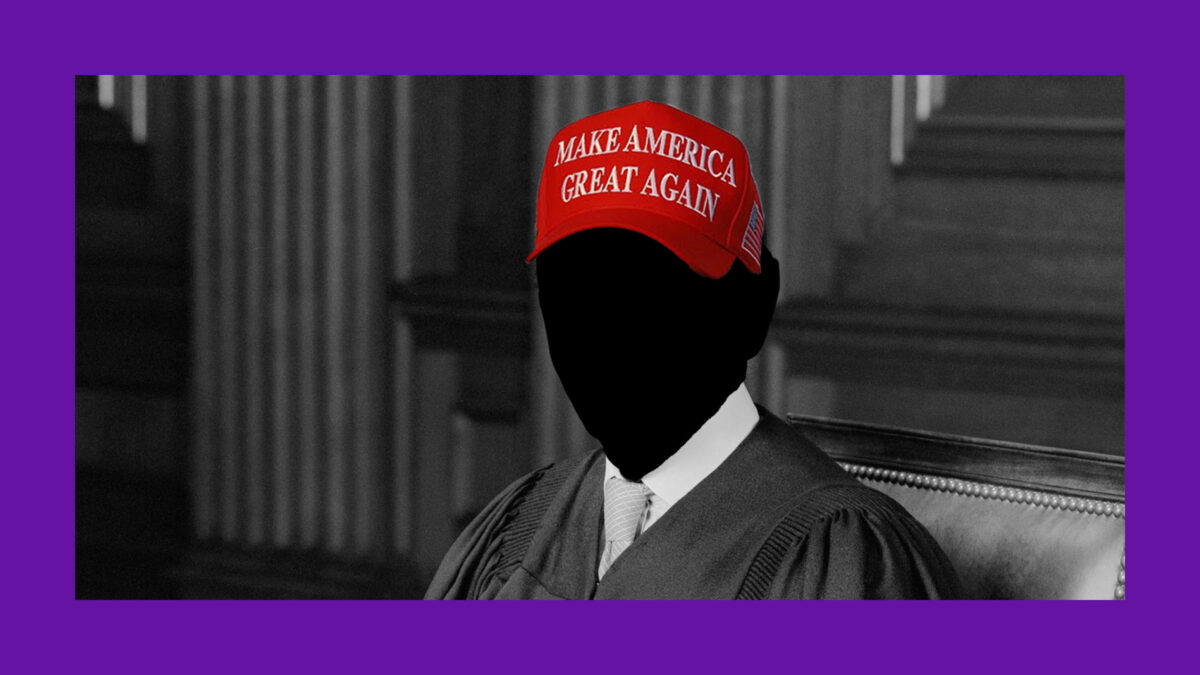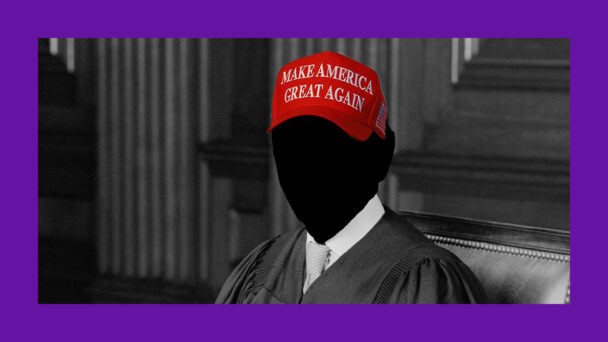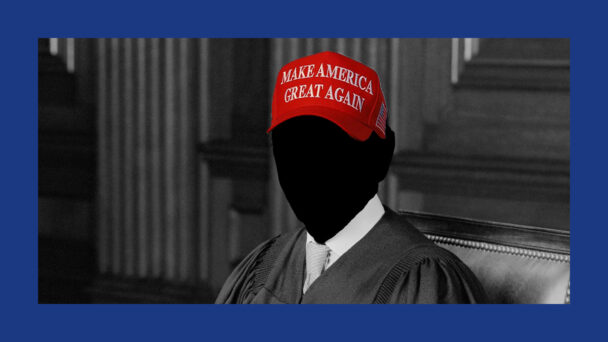Welcome to the FedSoc Twelve, a Balls & Strikes series about some of Donald Trump’s most unhinged judicial appointees. These judges, whether in their legal opinions or their off-the-clock conduct, have continued to push Trump’s agenda from the bench, forming something of a life-tenured Originalism Caucus within the federal judiciary. This summer, we’ll be checking in on these men and women now that they’ve gotten a chance to spread their wings during the Biden administration—and as they fight to be first in line for a Supreme promotion the next time Republicans control the White House.
The Résumé
Justin R. Walker had two rich, powerful grandparents with close ties to Kentucky’s political establishment. Despite this adversity, he somehow rose to the federal judiciary, first in Kentucky and then to the D.C. Circuit. His maternal grandfather was a real estate developer who served as Kentucky’s secretary of transportation. His grandmother’s second husband was a corporate executive and a friend of then- and somehow-still-Senator Mitch McConnell. Justin became Mitch’s protégé, first interning for the Senator while a student at Duke. He then joined President Bush’s 2004 reelection campaign before becoming a speechwriter for Secretary of Defense Donald Rumsfeld. He eventually enrolled in Harvard Law School in 2006, where he promptly joined the Federalist Society.
After graduating, Justin clerked for Brett Kavanaugh while Kavanaugh was on the D.C. Circuit Court of Appeals, then for Supreme Court Justice Anthony Kennedy, whose retirement paved the way for Kavanaugh’s Supreme Court gig. After clerking, he took a job teaching legal writing at the University of Louisville. Senator McConnell is an alumnus and donor who has endowed his own scholarships and institutions at the school, which may partially explain how Justin got a job teaching legal writing there.
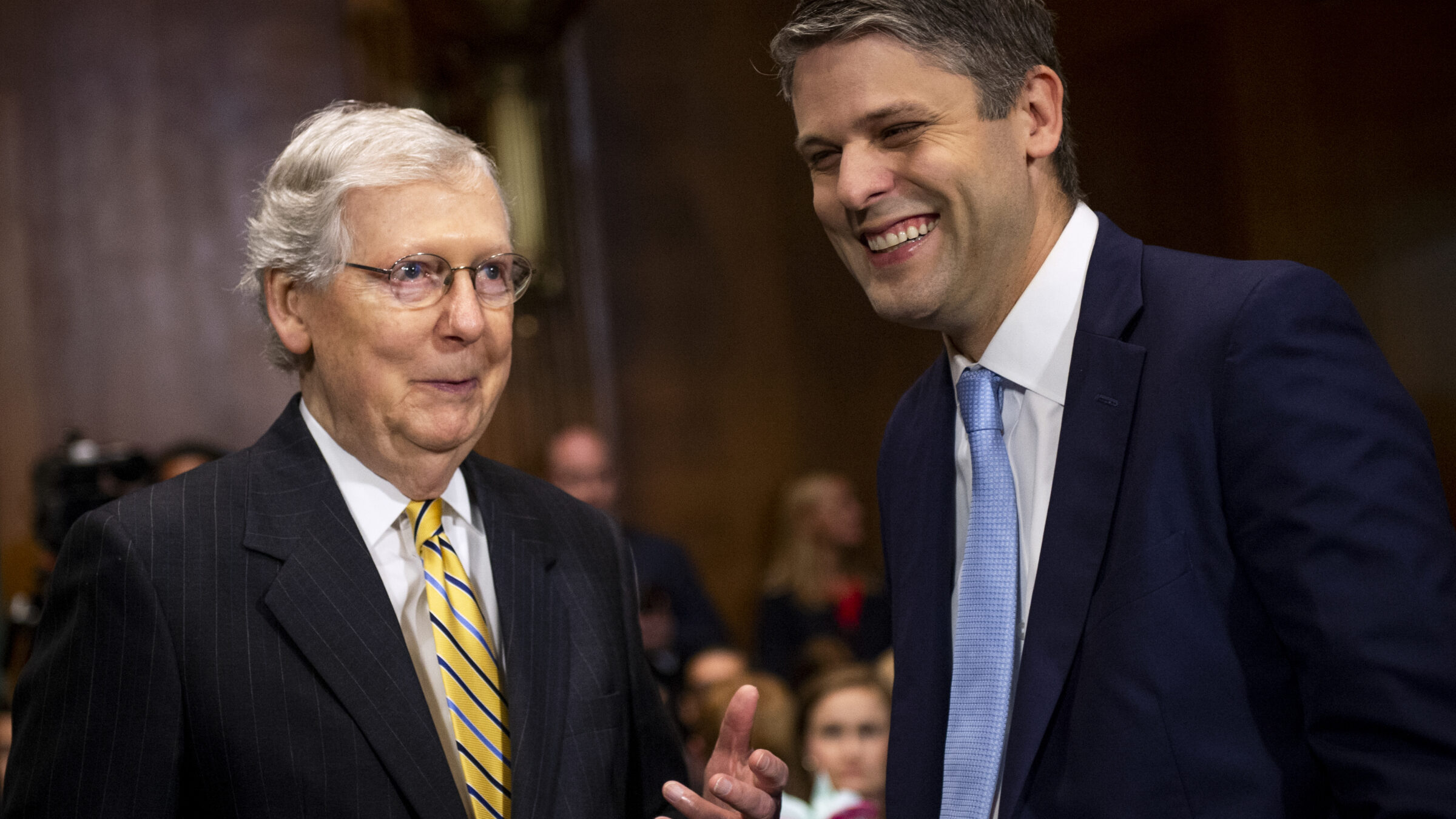
Photo by Caroline Brehman/CQ Roll Call
While teaching at Louisville, Justin buttressed his conservative bona fides, publishing a paper explaining the importance of Presidential oversight over the FBI while the FBI was investigating Donald Trump, going on a media blitz supporting Brett Kavanaugh during his confirmation fight – which we’ll get back to in a moment – and working for a conservative literary agency on the side. In 2019, he was nominated for a district court judgeship in the Western District of Kentucky, rated not qualified by the American Bar Association because he had no trial experience, and confirmed anyway in October.
Then, mere months after he took his seat, the White House nominated him for a vacant seat on the powerful D.C. Circuit. This time, the ABA changed its mind (in part because being a court of appeals judge is easier than being a trial court judge), and he was confirmed again in 2020.
The Opinions
Justin’s most well-known opinion made national headlines when he wrote it in April 2020 as a district court judge. In On Fire Christian Center v. Fischer, Justin wrote a heroic defense of the rights of America’s most marginalized religious group in the face of tyranny, granting an evangelical Christian church a temporary restraining order to prevent the state of Kentucky from putting them in jail for the crime of celebrating Easter.
The only problem is that none of that happened. In April of 2020, COVID-19 was still fresh and exciting, and public health officials still had little information and fewer recommendations to keep people safe. In that weird environment, the city of Louisville (like many other places) asked folks to stay home, even for religious celebrations. They didn’t make it a crime or a ticket, although they did ask Louisville police to help explain the city’s recommendations to folks they saw out and about.
A church that wanted to have drive-in Easter services sued Louisville the Friday before Easter, asking for a temporary restraining order declaring Louisville’s COVID guidance – a simple request to stay home, with no criminal or civil penalties – to be unconstitutional.
Had Justin simply asked both parties to call in to a scheduling conference on Saturday, he might have saved himself a lot of trouble. Federal judges can grant restraining orders without consulting the other party in extreme cases, but it’s usually a good idea to get both sides on the phone to figure out what the major issues in the case are and whether the person asking for the restraining order has their head screwed on straight. But instead of doing that, apparently assuming that an evangelical church would never misstate the facts, Justin penned an embarrassing rant, heavily salted with paeans to Christian faith and Biblical teachings that were never under threat.
It’s hard to overstate how weird this opinion was. At one point, he dropped a footnote to an Encyclopedia Britannica article to remind his readers that West Virginia Senator Robert Byrd was in the KKK; elsewhere, he dropped a footnote discussing the death toll of the Thirty Years’ War in central Europe. Justin’s opinion was so bizarre, it was even criticized by fellow conservatives. If a walking Moms for Liberty amicus brief like Josh Blackman is describing your rhetoric as “over the top,” you might have gone too far!
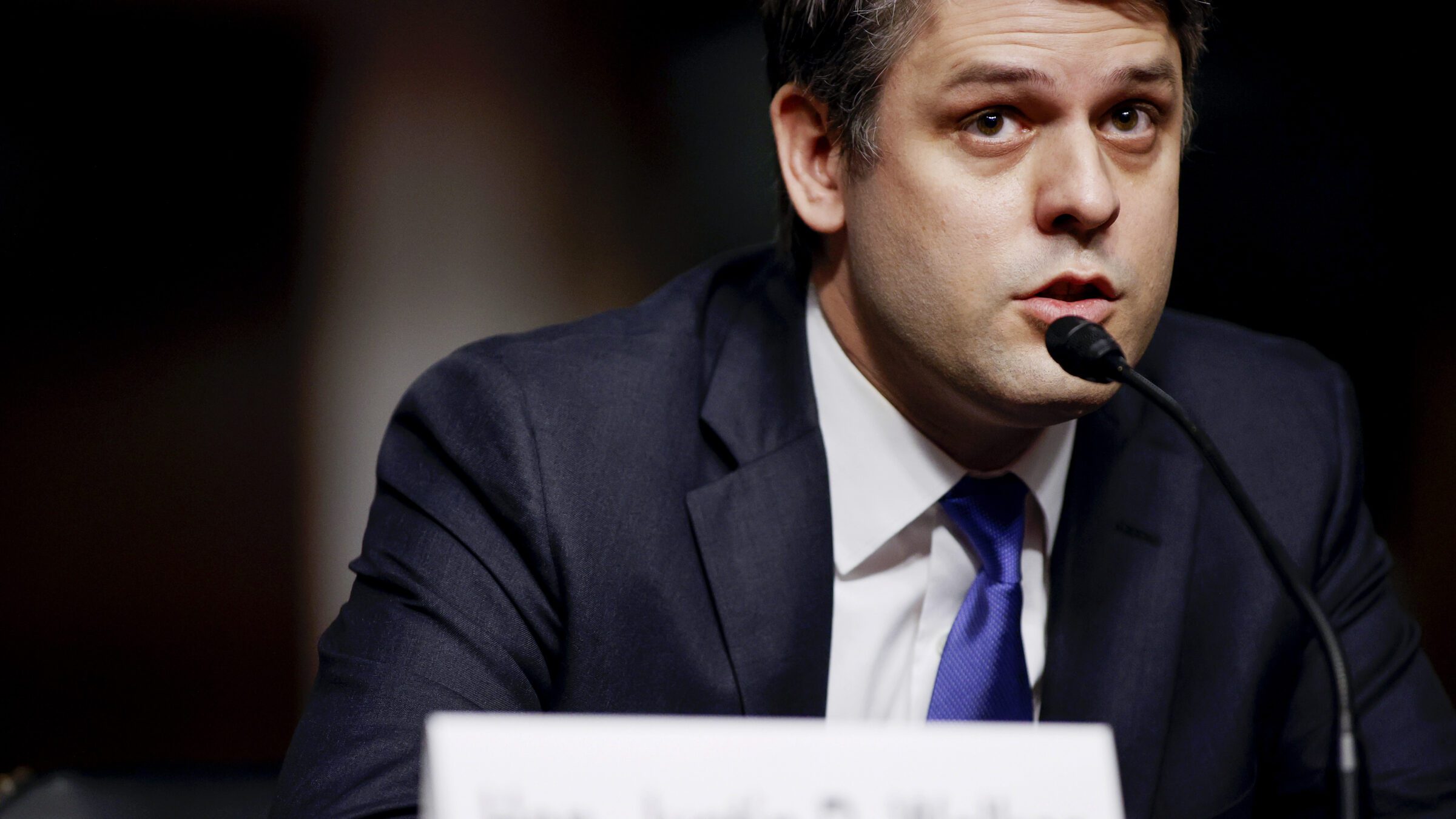
Photo by Jonathan Ernst – Pool/Getty Images
None of that kept Justin from ascending to the D.C. Circuit, though. And as an appellate judge, he’s consistently upheld the rights of corporations to be free from pesky government rules. In 2021, Justin overturned Obama-era rules that required trailers in tractor-trailers – you know, big rigs – to meet fuel economy standards. Federal law allows the National Highway Traffic Safety Administration to set fuel economy standards for “commercial medium-duty or heavy-duty on-highway vehicles.” But because trailers don’t have motors, Justin held that they’re not “vehicles.” (He just read that into the definition; the federal statute didn’t require that “vehicles” have motors.) Tractors have no purpose unless they’re pulling trailers or going to pick up a trailer, so trailers are an integral part of the whole vehicular system. But Justin pointed out that sometimes, you see tractors on the highway that aren’t pulling anything, so the trailers must not be “vehicles.”
In another case, Justin helped protect airlines from Congressional oversight. For decades, airlines have been shrinking seats to stuff as many passengers as possible into their tin cans. Advocacy groups pushed the Federal Aviation Administration to adopt rules setting minimum seat sizes, but the FAA refused to do so. In 2018, advocates successfully lobbied Congress to pass a law ordering the FAA to adopt rules “that establish minimum dimensions for passenger seats on aircraft… that are necessary for the safety of passengers.” The FAA decided that minimum seat size rules were not “necessary for the safety of passengers,” so it didn’t have to do anything. And in 2023, after advocacy groups sued to force the FAA to follow the law, Justin agreed with the FAA. Congress, he held, hadn’t charged the FAA with a “clear legal duty” to adopt rules, even though Congress had specifically ordered the FAA to adopt rules. Make sure to thank Justin next time you’re crammed into a coach seat on a 5-hour flight.
The Weird Shit
As you may recall, during Brett Kavanaugh’s Supreme Court confirmation in 2018, Professor Christine Blasey Ford accused Kavanaugh of sexually assaulting her at a house party when the two were both high school students. In her Senate testimony, Professor Ford was clear, forthright, and utterly believable. But Trump stood behind his nominee, Senate Republicans fell in line, Kavanaugh denied all wrongdoing and cried on national television, and he was confirmed by a vote of 50-48.

Photo by Drew Angerer/Getty Images
Throughout it all, Justin constantly appeared on Fox News to support Kavanaugh. By one count, he sat for over 160 interviews on Fox and other outlets for the cause. Before Professor Ford’s testimony, his interviews focused on Kavanaugh’s rock-solid conservative credentials, calling Kavanaugh “a warrior” and “a fighter for conservative legal principles who will not go wobbly. The man does not have a wobbly bone in his body.” After Professor Ford’s accusations became public, he repeatedly claimed that Democrats’ calls for investigations were mere attempts “to delay for the sake of delay.” In one interview, he cynically feigned sympathy for Professor Ford, saying that she was “a victim of this unfair, vicious search and destroy mission against Judge Kavanaugh.” If all this was a test to see how low he would sink to get a judicial nomination, he passed.
At his swearing-in ceremony for his district court seat, Justin made clear he would be a conservative warrior, too. Another man might have promised, even disingenuously, to be a fair and impartial judge. Not Justin. Now-Justice Kavanaugh was there to swear him in, and Justin praised him effusively, comparing him to Saint Paul, “hard pressed on every side but not crushed, perplexed but not in despair.” I am not a deeply religious person, but to my knowledge, Saint Paul was not martyred after being accused of sexual assault during a judicial confirmation hearing.
Justin continued by criticizing his haters, including the American Bar Association, exhorting his audience to remember that “we cannot take for granted tomorrow, or we will lose our courts and our country to critics who call us terrifying and who describe us as deplorable.” All very normal things for a newly-vested federal judge to declare! His extremely partisan diatribe didn’t stop him from moving up to the D.C. Circuit less than a year later, and it won’t stop him from moving up to the Supreme Court, either, if he gets the chance. His ardor for the cause will only bolster his case for Republican senators and the conservative legal movement.
